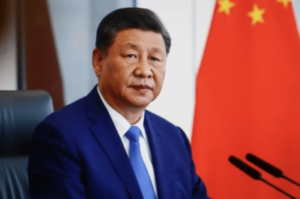$TSLA $NEE $ETH
#ClimateChange #RenewableEnergy #CleanTech #EnergyTransition #UAE #SustainableInvesting #EmergingMarkets #DevelopingMarkets #GreenFunds #CarbonNeutral #ESG #NetZero
Alterra, the largest private climate investment fund globally, was launched by the United Arab Emirates (UAE) last year with an ambitious $30 billion mandate to drive the global energy transition. Despite the fund’s staggering size and significant potential influence, its chief executive, Majid Al Suwaidi, has revealed a surprising challenge: a lack of viable investment opportunities within the clean energy sector. Speaking to Bloomberg, Al Suwaidi noted that attractive investment deals, particularly in emerging and developing markets, have been scarce, leaving much of the fund’s capital unutilized. This underscores broader challenges in scaling up climate finance to meet global net-zero targets.
The stagnation in deploying Alterra’s resources highlights a gap between capital availability and suitable opportunities, a mismatch that could hinder the acceleration of renewable energy initiatives globally. Emerging markets, vital to decarbonization efforts due to their high levels of projected energy consumption, often lack the economic or regulatory frameworks necessary to attract large-scale climate investments. Al Suwaidi did not disclose specifics on how much of the $30 billion has been spent, but the apparent hesitance to allocate significant capital raises questions about underlying risks, such as political instability, lack of project transparency, or inadequate returns. While there has been progress in renewable energy innovations, the difficulty in securing bankable projects in certain regions remains a major hurdle.
The broader market implications of this bottleneck are significant. Renewable energy-focused stocks, such as $TSLA (Tesla) and $NEE (NextEra Energy), could feel indirect pressure as limited capital deployment may slow innovation and infrastructure expansion in developing markets. Furthermore, the inability to find lucrative deals in clean energy raises concerns about the scalability of Environmental, Social, and Governance (ESG) investments, currently a cornerstone of efforts by sustainability-focused investors. Meanwhile, cryptocurrencies like $ETH (Ethereum), which has shifted to a more energy-efficient proof-of-stake algorithm, continue to offer alternatives for climate-conscious investors amidst the difficulties in scaling traditional clean energy investment avenues.
Alterra’s struggles also amplify the urgency for international collaboration and regulatory reforms to unlock investment opportunities in lagging markets. Governments in emerging economies must accelerate policy frameworks for de-risking climate-related projects, while multilateral institutions and private stakeholders could play a larger role in creating blended finance mechanisms. Without intervention and innovation, the current capital surplus in funds like Alterra could hinder progress towards achieving the global energy transition. These developments will likely keep ESG investment advocates and renewable energy stakeholders on high alert, as the disparity between climate finance promises and tangible progress continues to widen.











Comments are closed.